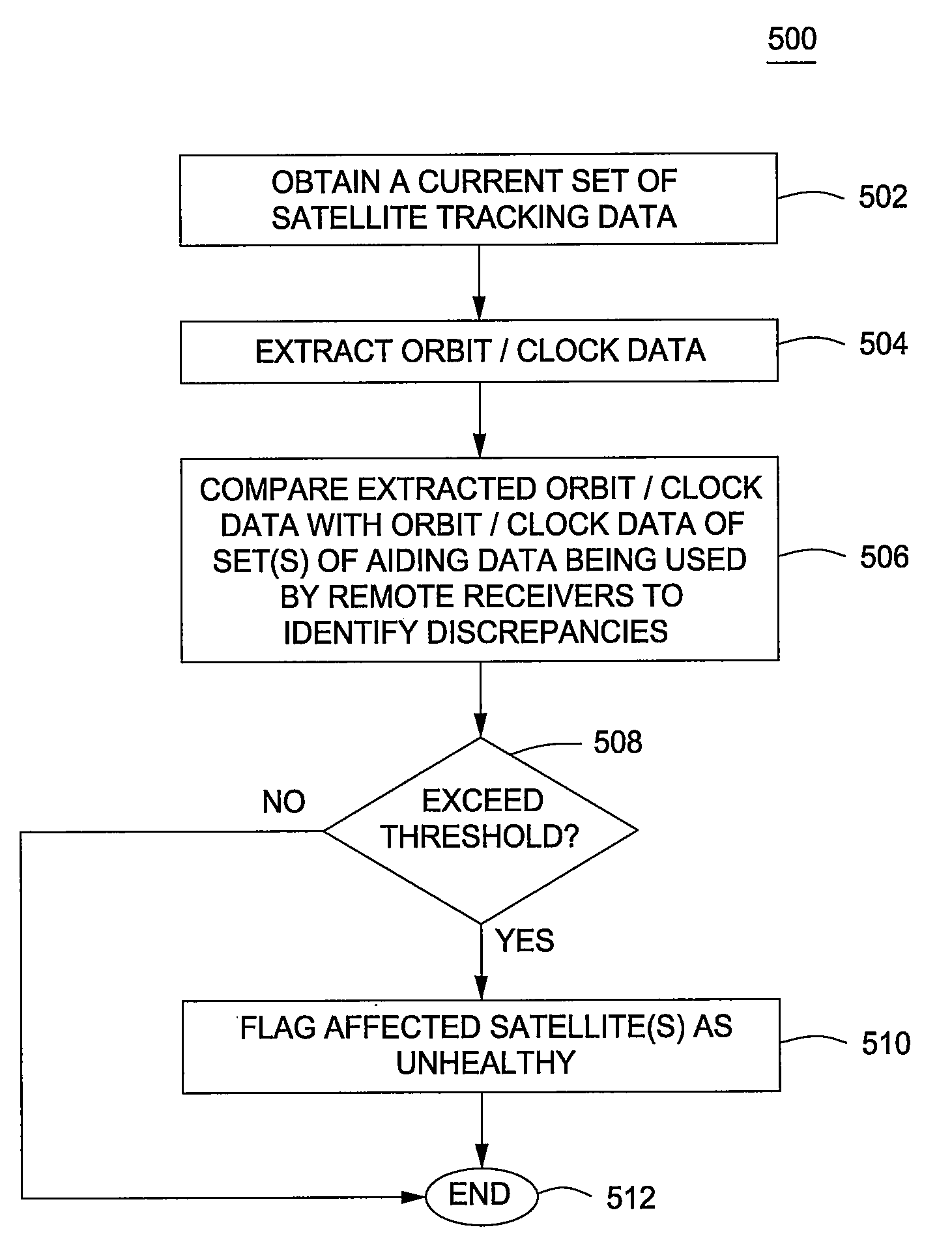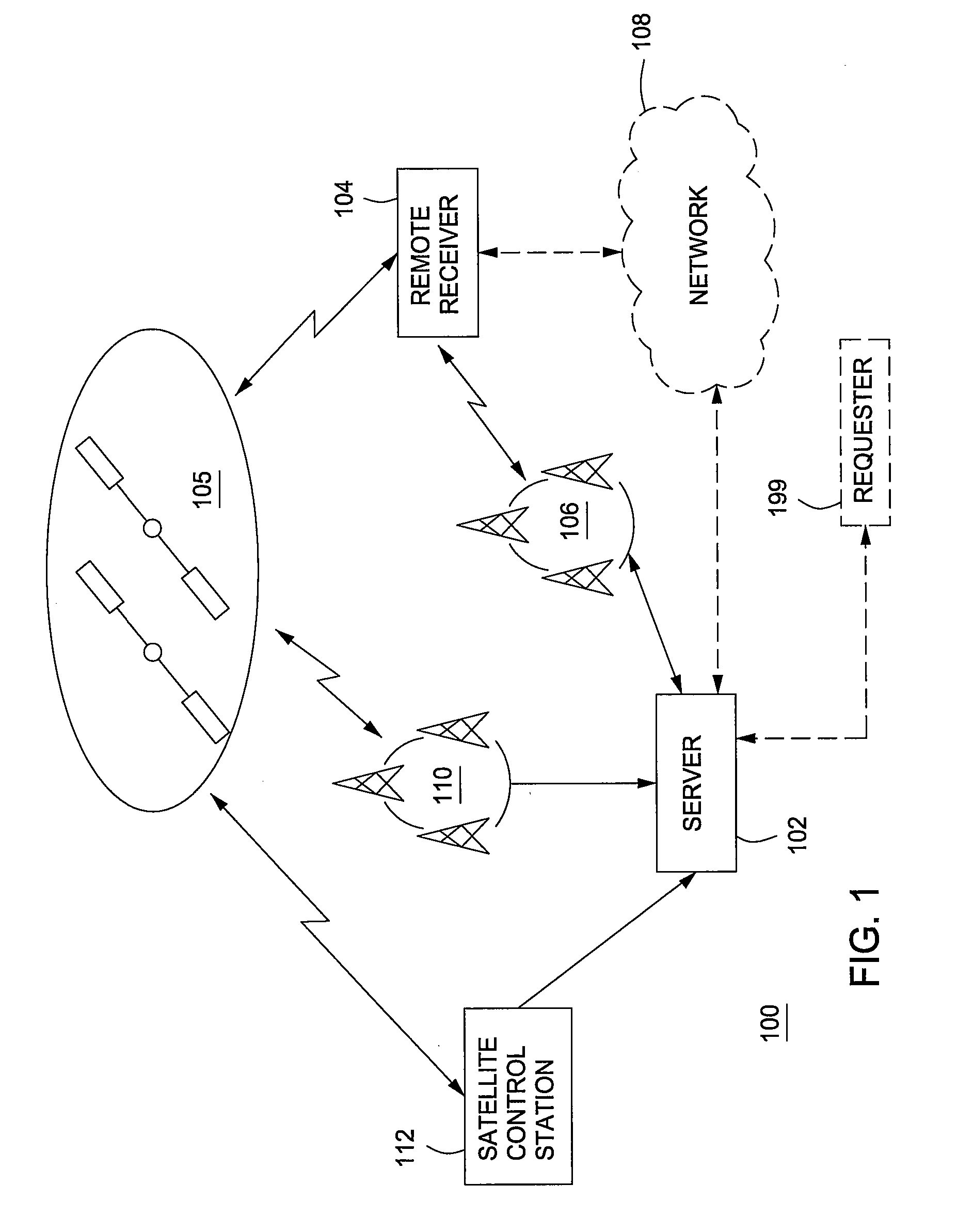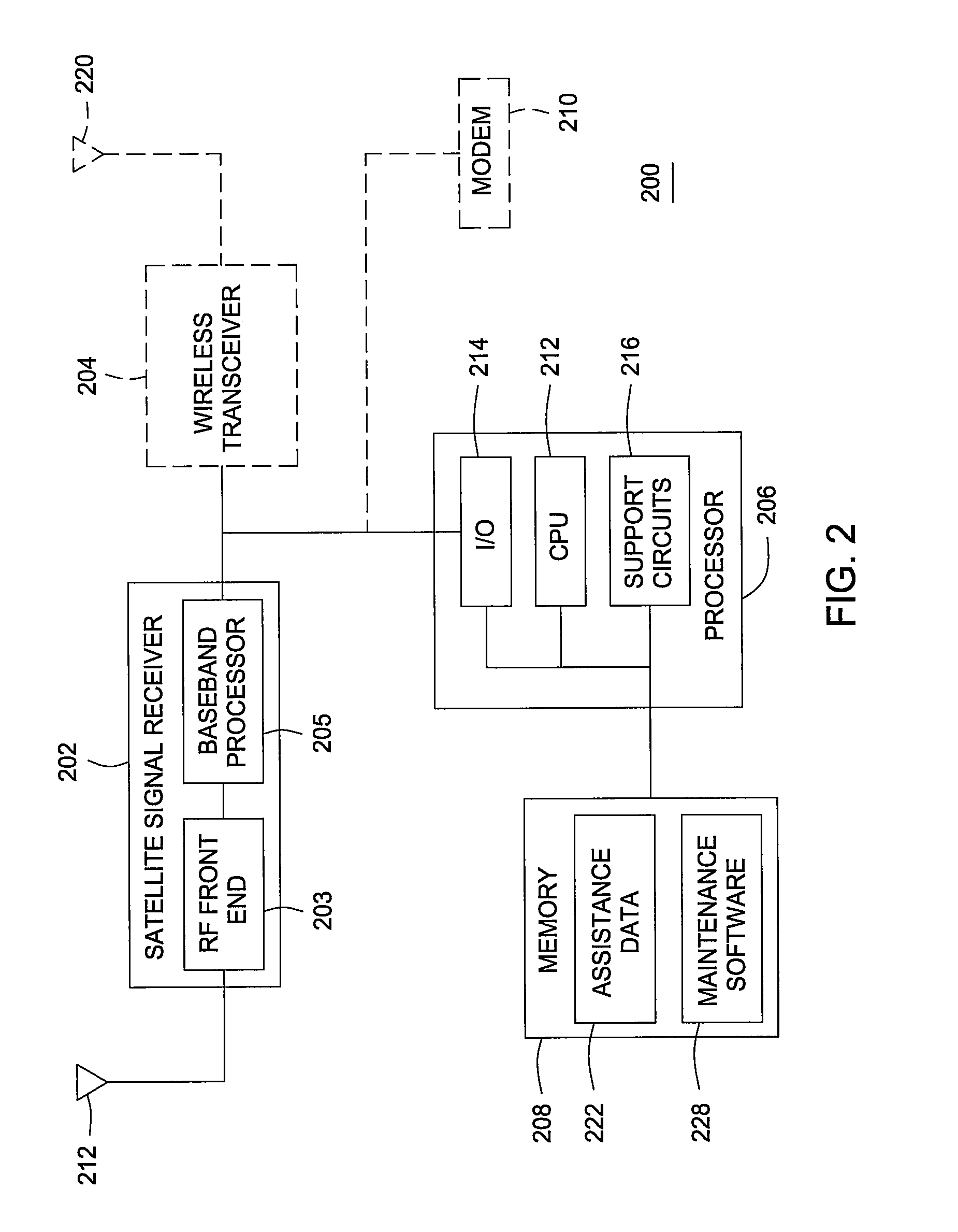Method and apparatus for improving accuracy and/or integrity of long-term-orbit information for a global-navigation-satellite system
a global satellite and information technology, applied in the field of position location systems, can solve the problems of reducing affecting so as to improve the accuracy and integrity improve the accuracy of long-term orbit information, and reduce the amount of errors
- Summary
- Abstract
- Description
- Claims
- Application Information
AI Technical Summary
Benefits of technology
Problems solved by technology
Method used
Image
Examples
Embodiment Construction
[0043]FIG. 1 is a block diagram depicting an example of a Global Navigation Satellite System (“GNSS”) 100. The GNSS 100 includes a plurality or constellation of satellites for transmitting satellite signals, as represented satellites 105, a GNSS receiver 104 for receiving the satellite signals, and a server 102. The satellites 105, the GNSS receiver 104, the server 102, the GNSS 100 as a whole, and functions, procedures, components and other details provided herein may be tailored for any GNSS, including, for example, the Global Positioning System (“GPS”), GALILEO, GLONASS, SBAS (Space Based Augmentation System), QZSS (Quazi-Zenith Satellite System), LAAS (Local Area Augmentation System) or some combination thereof.
[0044]The GNSS receiver 104 may be in communication with the server 102 via a communication link. This communication link may be formed, for example, by communicatively coupling one or more nodes of a network, such as a wireless communication system 106 (e.g., cellular te...
PUM
 Login to View More
Login to View More Abstract
Description
Claims
Application Information
 Login to View More
Login to View More - R&D
- Intellectual Property
- Life Sciences
- Materials
- Tech Scout
- Unparalleled Data Quality
- Higher Quality Content
- 60% Fewer Hallucinations
Browse by: Latest US Patents, China's latest patents, Technical Efficacy Thesaurus, Application Domain, Technology Topic, Popular Technical Reports.
© 2025 PatSnap. All rights reserved.Legal|Privacy policy|Modern Slavery Act Transparency Statement|Sitemap|About US| Contact US: help@patsnap.com



